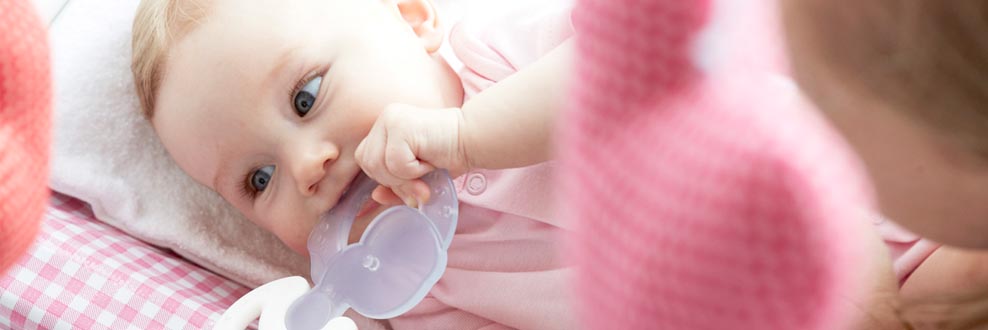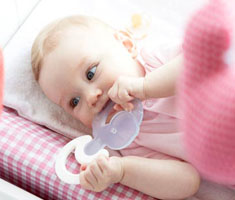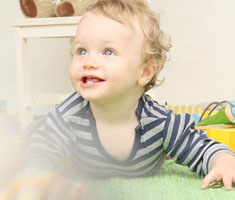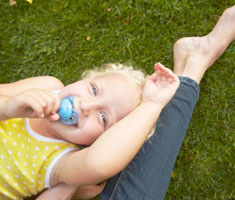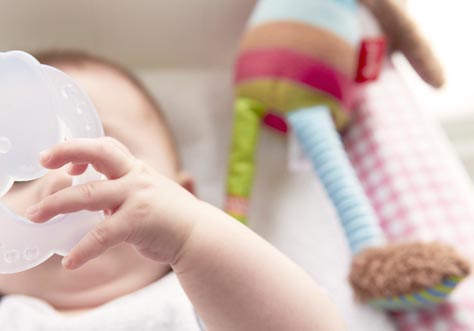
During the first three months of your child’s life, everything is new: for you, it's being a parent; for your infant, it's the whole world. Give yourselves plenty of time together so that you can get to know each other and bond fully.
Sleeping and waking times will gradually fall into a day/night rhythm. But don’t rejoice too soon: the speed at which this occurs varies hugely from child to child, and the most you should expect in any case will be six hours’ sleep at a stretch.
Even if it seems to others that all your baby does is sleep, feed and cry, she is not only gaining in size and strength every day, but is also becoming more alert and active. She is learning to lift and hold her head up when placed on her stomach and maybe even to turn it to look at something interesting.
Babies have an innate fascination with human faces. Although she only perceives faces in simplified form and is unable to distinguish one from another, your child will recognise Mummy or Daddy’s face.
At around 6-8 weeks, the grand moment arrives when you get your first smile. Parents, as well as any other friendly faces turned towards her will be rewarded with a dazzling beam.
Crying patterns and behaviour become more sophisticated and reach their climax with the dreaded three-month colic. Thereafter, crying usually decreases steadily in intensity.
Arms and legs that had initially jerked uncontrollably start to calm down and become more coordinated. Your baby will begin to examine her hands thoroughly, putting them in her mouth and bringing them together over her chest. She is getting ready for her next developmental step: intentional grasping.
From 4 months your baby will start moving out into the world – further and further from his parents. If everything has gone well in the first few months, your child will be confident in his surroundings, encountering everything around him with gurgling, radiant curiosity and his first tuneful sound sequences.

